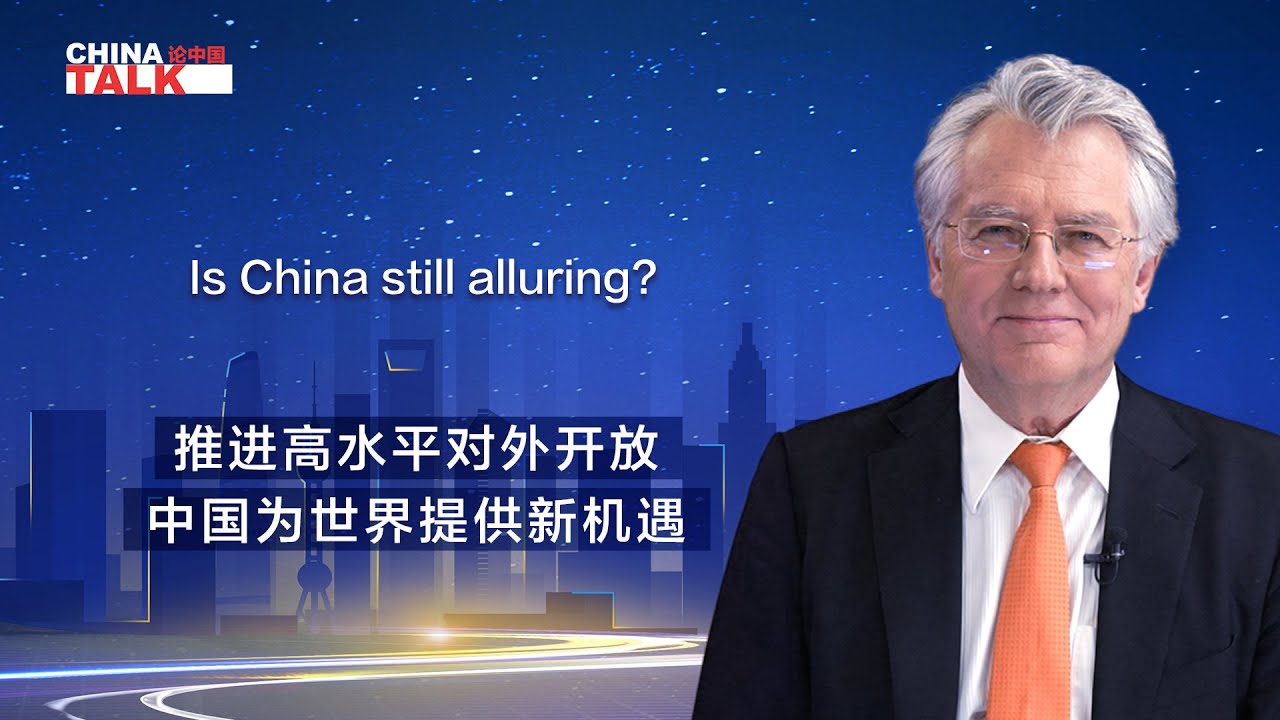Is China Still Alluring?
Unleash Your Creative Genius with MuseMind: Your AI-Powered Content Creation Copilot. Try now! 🚀
In the face of global economic headwinds, the economic and trade cooperation between China and Europe has been steadily improving, both in terms of diversity and volume. This is a testament to the enduring appeal of China to foreign companies, despite the challenges that come with doing business in this vast and dynamic market. As the President of the European Chamber of Commerce in China, I have had the privilege of observing these economic ties from up close, and I am here to share my insights with you.
Chapter 2: A Journey Through Time: Witnessing China's Transformation
I first set foot in China in 1982, a time when the country was still in the early stages of its economic transformation. I have lived in this country on and off for the past 35 years, and I have witnessed the incredible speed at which China has been developing. I remember vividly the time it took to travel from the city to the mountain in the Qinghai highlands. It took me about 12 hours by car, but just a few years later, it took only two hours. This rapid pace of change is one of the reasons why I believe China is still alluring to foreign companies, despite the challenges we faced in 2022.
Chapter 3: The Power of China's Economic Size and Market Dominance
One of the most compelling reasons why China is still alluring to foreign companies is its economic size. Some say it's the largest economy in the world, comparable to that of the United States. This economic power is reflected in the dominance of China in various global markets. For instance, half of the global chemical market is in China, and one-third of the global car market is in China. The Chinese machinery market is as big as the combined markets of the U.S, Japan, and Europe. To succeed globally, one must be a global player, and to be a global player, one must be in China.
Chapter 4: The Allure of China's Infrastructure and Labor Pool
China's infrastructure and labor pool are other significant factors that make China alluring. The country has built incredible clusters over the last 20 years, particularly in the Pearl River Delta. These clusters offer investors a plethora of resources needed for assembly and production. The infrastructure in China is also efficient and vast, with six or seven of the busiest ports in the world located within its borders.
Chapter 5: The Sophisticated Chinese Consumer and the Challenge of Keeping Up
The demanding and sophisticated urban Chinese consumer is another advantage of doing business in China. They are not always brand loyal, which keeps companies on their toes. European companies operating in China are essentially in a fitness center, learning from the Chinese consumer and making new adjustments and amendments. This can be replicated in their global business, allowing them to grow with the Chinese consumer and produce better products.
Chapter 6: The Interdependence of Europe and China
Europe and China are deeply interdependent. In the first 10 months of 2022, China shipped 5 million containers into the European Union. This shows the extent of the trade between the two regions. At the same time, European companies have invested heavily in China, with the stock somewhere between 160 and 170 billion US dollars in the Chinese economy. Chinese companies have also been successful in the European market, with an estimated 130 billion US dollars invested into the European Union by Chinese companies. This interdependence shows that we can work and learn from each other.
Chapter 7: The Challenges and Opportunities in China's Market Access
Despite the challenges, there are also opportunities in China's market access. For example, BMW's acquisition of a German joint venture in Shenyang for nearly 4 billion US dollars in the first quarter of the last year was a significant performance. This showcases the potential for more acquisitions and partnerships in the future.
Chapter 8: The Political Landscape: Partnership, Competition, and Systemic Rivalry
The political landscape between Europe and China is complex and multifaceted. European Union has been coming up with a paper indicating three pillars of how they want to work with China: partnership, competition, and systemic rivalry. Partnership is where we link in business, both in China and in the European Union Market.
